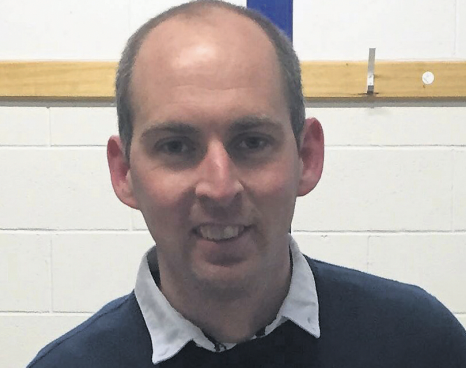Transition Year is less about academic learning and more about developing life skills, confidence and thinking outside the ‘exams’ box. In an era where more emphasis is being put on creative thinking, flexibility and teamwork as job skills, it’s a very valuable stage in any young person’s education.
TRANSITION Year gives young adults the opportunity to venture out of their comfort zones, to enrich their skillsets and get a taste of their future career opportunities.
Conor Uhl, Transition Year (TY) co-ordinator at Skibbereen Community School is passionate about its importance in the development of any young person.
‘You get out of it as much as you put into it,’ he says. ‘If you are willing to get out of your comfort zone, try new things and get involved then you’ll have a huge learning from Transition Year. Whereas, If you sit back and want things to happen and land in your lap you’ll probably turn around and say that TY was a boring year.’
Conor says that Transition Year is unique because it’s not exam-focused or driven solely by academic achievement. ‘The end goal is something totally different. It’s just education, it’s not a points race. It’s learning new skills and will you use all of them? Probably not, but will they make you more mature and more knowledgeable and more rounded as a person? Absolutely.’
Students who have just finished their Junior Certificate get the chance to explore their career options and to develop their capabilities before beginning the senior cycle.
‘This is an opportunity to give students a taste of something and to just learn from experiencing it, without having an exam in it afterwards. It develops students not just academically, but as a person – from a careers point of view and very much from a social point of view as well – so you’re looking for them to mature and grow into young adults really.’ Conor explains.
In TY much of the emphasis is on new skills and students are given the freedom to choose a variety of diverse modules which look at developing their life skills and career prospects. Subjects include computer science and coding, sustainability, driver theory and film-making – to mention just a few.
Part of the TY experience involves splitting the students into groups and tasked with creating mini-companies. They must generate ideas, come up with a feasible business concept and oversee the management and advertising of the small business. This project require consistency, responsibility and teamwork.
‘In this world we need to be so adaptable to new and very different types of careers coming online all the time. What we want to do in transition year is give the skills and the confidence to be resilient in the modern world of work and to be adaptable to new careers.’ says Conor.
TY also offers students scope to dabble in different careers – with students undertaking two blocks of work experience in their preferred professions. ‘Theory and practice are very different things,’ explains Conor. ‘You are meant to get out of your comfort zone, try new things, some things will work out for you but others won’t. The learning that you can get from trying things and failing at them is huge because you’re building resilience. You’re learning more about yourself as a person. And that’s giving you that guidance then, going into senior cycle saying ok this is the direction I want to go.’
The students also carry out a social placement which looks at giving back to the community – some train younger generations in sports for instance. ‘I did transition year myself as well and I know that year was a huge growth spurt for me – both from a confidence point of view and being more comfortable working with my peers. You’re becoming a team player and you’re becoming more conscious of the people around you as well.’
Along with gaining hands-on experience in different fields, career guidance and CAO advice are provided in TY, so that students can plan for the future.
‘If you have a career path in mind – you’re starting to be introduced to what route you need to go down, what subjects you need to choose – so you’re getting an insight into all of that. ‘If you don’t do Transition Year, sometimes you don’t develop that maturity to see what your faults and weaknesses are, and what your strengths are. And the research is there showing that if you do Transition Year the likelihood of drop-out from third level education is much smaller because you’ve made a more educated decision going into third-level.’ concludes Conor.
 Conor Uhl, TY co-ordinator, Skibbereen Community School.
Conor Uhl, TY co-ordinator, Skibbereen Community School.






